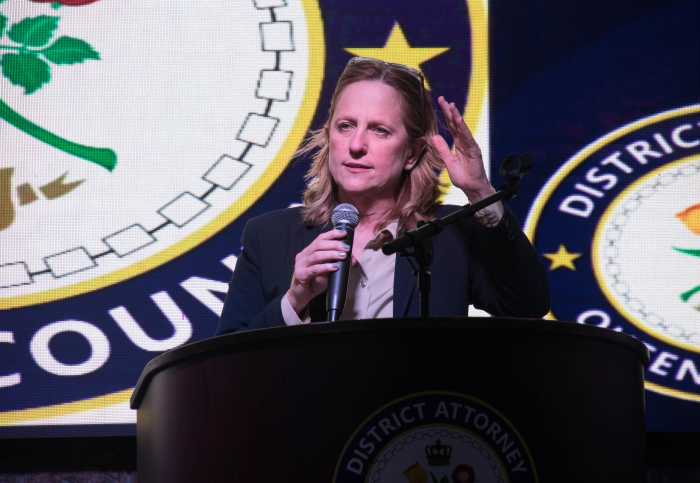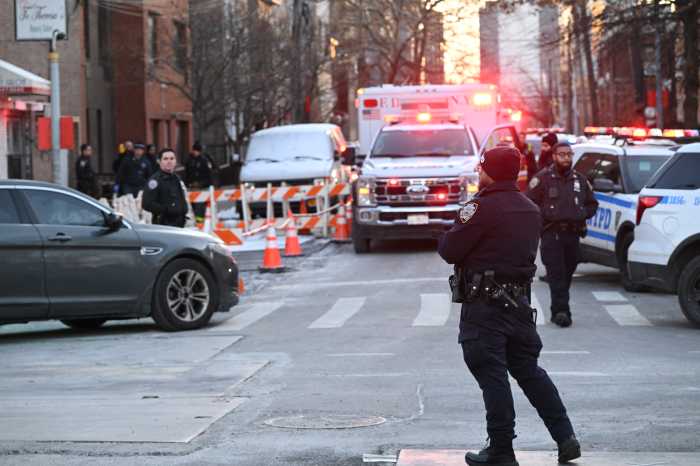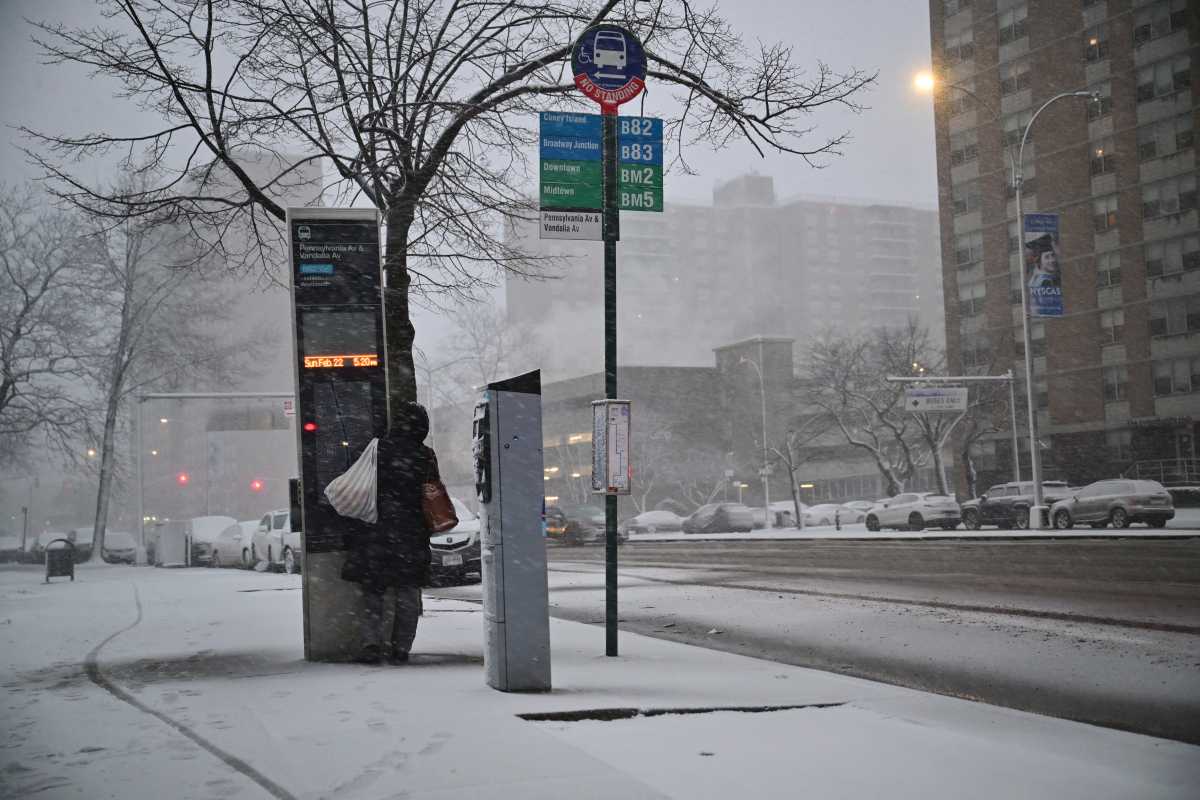A Manhattan jury’s decision to convict former U.S. President Donald Trump—a Queens native—on 34 counts of falsifying business records has led to fierce debate, study and reflection across the borough and around the world.
Trump, who lived in Jamaica Estates until he was 13, made history on May 30 as the first former Commander in Chief convicted of a felony crime. In what many have called a “hush money” trial — to the dismay of many Trump supporters — the businessman faced the legal ramifications regarding how he recorded $130,000 in payments to his attorney, Michael Cohen, who, in turn, made them out to Stormy Daniels, an adult film star. The payments were made prior to the 2016 election.
The verdict has spurred political debate, with Republican and Democratic pundits having plenty to say. Meanwhile, Queens academics and residents are still reflecting on the outcome.
Local academics say the court ruling has given the public an opportunity to revisit the nation’s political history, analyze the current political climate and better predict what could result from Trump’s conviction.
Dr. Peter Conolly-Smith, a long-time history professor at Queens College with a PhD in American Studies, helped QNS examine the past to determine whether other national leaders like Trump have been convicted of a felony.
Conolly-Smith explained that although the founding fathers may not have foreseen the possibility of a felon running for president when they penned the Constitution, a felon has sought the highest office in the land before.
One example he cited was Eugene Debs, a prominent national figure and founding member of the American Socialist Party. Debs ran for president from prison in 1920, after being convicted of sedition for urging people to resist the draft for World War I.
Debs had a national following when he sought office. For instance, he received just shy of 1 million votes in the 1912 election, which Woodrow Wilson, a Democrat, won with 6 million votes–in an election that also included incumbent Republican President William Howard Taft and former President Theodore Roosevelt.
“That is the closest [example] we have, which is not, of course, to suggest that Donald Trump is likely to go to prison, although that is a possibility,” Conolly-Smith said. “But even if he did, in the unlikely event that he was sentenced to prison, he could still run for president.”
Conolly-Smith, however, said the historic verdict could prompt politicians to rethink and modify the established rules of the U.S. Electoral College system.
“They may consider rethinking the way the electoral college works, and departing from the winner takes all state by state rule of the electoral college, which has twice in our present century already resulted in people who won less of the popular vote — nevertheless winning the presidency because they won in the electoral college,” he added, referencing Trump’s victory in 2016 and George W. Bush in 2000.
Brian Browne, an adjunct political science professor at St. John’s University, also examined America’s political history.
Browne made clear that Trump is the only President to be convicted of a crime and noted that Trump could potentially be convicted of another crime between now and election day. However, he added, Trump always manages to survive.
“It is simultaneously historic, embarrassing and sad for our political system,” Browne told QNS. “Yet, despite years of scandal, opponents have been predicting Trump’s impending political collapse, only to be proven wrong,” Browne shared.
Browne referenced the political history of James Michael Curley, the 53rd Governor of Massachusetts and a long-serving mayor of Boston until 1950, as an example of a political figure who beat the odds despite his criminal history.
“Curley was elected to various political offices during a lengthy career and was twice convicted of criminal behavior, and even served time in prison during his last term as mayor of Boston,” Browne added.
Overall, Browne expects the verdict of the Trump trial will not dramatically shift the presidential race as much as Democrats would hope. However, he added, the guilty verdict does leave a political bruise on the former president, although both parties have used the case as a means to rally their base.
For instance, shortly after the Trump verdict, Paul King, a Republican challenger for Gregory Meeks’ Queens congressional seat, called the outcome of the trial a “sad day in America.”
“An activist prosecutor, a judge from the New York Democratic machine and the Biden White House successfully conspired to convict the Republican nominee for the President of the United States on absurd felony charges,” King said in a released statement.
King also asserted in his statement that the entire trial was an egregious attempt to knock Trump off the ballot or, at minimum, leave him so damaged that President Biden could win reelection without really earning it.
On the other side of the political spectrum, Trump’s verdict is a saving grace that finally makes the former president accountable for his actions.
On the same day the conviction was announced, U.S. Representative Grace Meng said on X, “This is a somber day for our nation. But as I’ve said before, no one is above the law.”



































